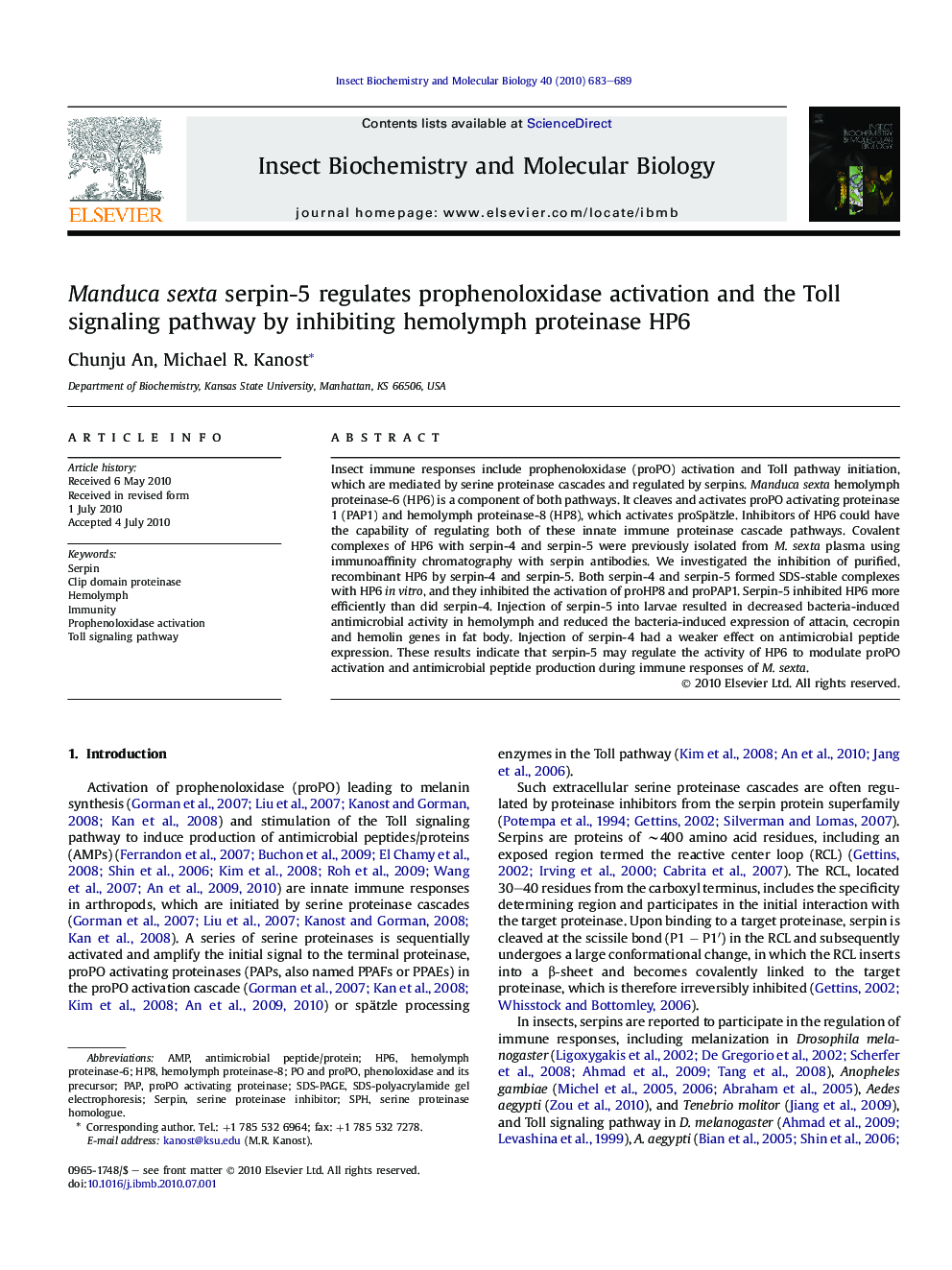| Article ID | Journal | Published Year | Pages | File Type |
|---|---|---|---|---|
| 1982499 | Insect Biochemistry and Molecular Biology | 2010 | 7 Pages |
Insect immune responses include prophenoloxidase (proPO) activation and Toll pathway initiation, which are mediated by serine proteinase cascades and regulated by serpins. Manduca sexta hemolymph proteinase-6 (HP6) is a component of both pathways. It cleaves and activates proPO activating proteinase 1 (PAP1) and hemolymph proteinase-8 (HP8), which activates proSpätzle. Inhibitors of HP6 could have the capability of regulating both of these innate immune proteinase cascade pathways. Covalent complexes of HP6 with serpin-4 and serpin-5 were previously isolated from M. sexta plasma using immunoaffinity chromatography with serpin antibodies. We investigated the inhibition of purified, recombinant HP6 by serpin-4 and serpin-5. Both serpin-4 and serpin-5 formed SDS-stable complexes with HP6 in vitro, and they inhibited the activation of proHP8 and proPAP1. Serpin-5 inhibited HP6 more efficiently than did serpin-4. Injection of serpin-5 into larvae resulted in decreased bacteria-induced antimicrobial activity in hemolymph and reduced the bacteria-induced expression of attacin, cecropin and hemolin genes in fat body. Injection of serpin-4 had a weaker effect on antimicrobial peptide expression. These results indicate that serpin-5 may regulate the activity of HP6 to modulate proPO activation and antimicrobial peptide production during immune responses of M. sexta.
Graphical abstractFigure optionsDownload full-size imageDownload high-quality image (142 K)Download as PowerPoint slideResearch Highlights► Serpin-5 inhibits hemolymph protease 6. ► Inhibition of hemolymph protease 6 decreases proPO activation and antibacterial peptide synthesis. ► Serpin-5 regulates bacteria-induced cecropin and attacin expression.
